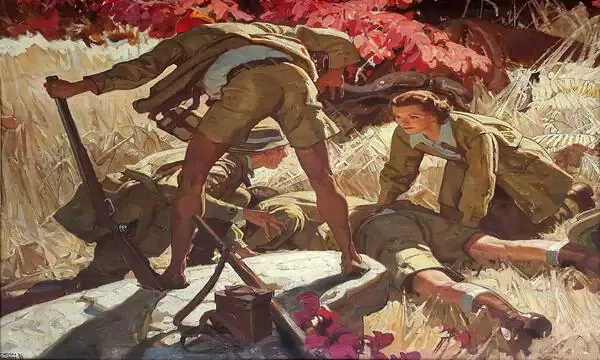Summary of the Short story The Short Happy Life of Francis Macomber
"The Short Happy Life of Francis Macomber" is a famous short story written by Ernest Hemingway, first published in 1936. It tells the story of Francis Macomber, a wealthy American on a safari in Africa with his wife, Margot. The story explores themes of masculinity, courage, and the complexities of relationships.
The plot revolves around Francis Macomber's transformation from a timid and insecure man into a courageous figure. At the beginning of the story, Francis is depicted as cowardly and emasculated, particularly when facing dangerous game during the hunting expedition. He is constantly belittled by his wife, Margot, who has an affair with their experienced guide, Robert Wilson.
After a failed lion hunt, Francis finally gains some confidence when he successfully shoots a buffalo. This newfound courage boosts his self-esteem and changes the dynamics of his relationship with Margot. However, as the story progresses, tension arises between Francis, Margot, and Wilson.
Ultimately, a tragic event occurs. During a hunt, a wounded buffalo charges at Francis. Instead of showing bravery, he panics and flees. Margot, who had previously shown contempt for Francis, shoots at the buffalo but ends up fatally shooting Francis by accident.
"The Short Happy Life of Francis Macomber" explores themes of gender roles, the fragility of masculinity, the power dynamics within relationships, and the consequences of cowardice and courage. It delves into the complexities of human behavior and emotions, leaving readers with much to contemplate.
when was the short happy life of francis macomber written?
Short Happy Life of Francis Macomber moral
- The fragility of masculinity: The story highlights the dangers of tying one's self-worth solely to traditional notions of masculinity. Francis Macomber's initial timidity and insecurities challenge the traditional expectations of bravery and courage, and his eventual transformation highlights the complexity of masculinity and the potential consequences of basing one's worth on societal expectations.
- The complexities of relationships: The story delves into the intricate dynamics of relationships and the impact of power imbalances. The strained relationship between Francis and Margot exposes the destructive consequences of manipulation, infidelity, and contempt. It serves as a cautionary tale about the importance of trust, communication, and mutual respect in sustaining healthy relationships.
- Consequences of cowardice: The story explores the consequences of cowardice and the potential for personal growth through facing one's fears. Francis's moment of cowardice in the face of danger ultimately leads to his demise. It serves as a reminder that avoiding challenges or shirking responsibility can have significant and irreversible consequences.
- The fleeting nature of happiness: The title itself suggests the transient nature of happiness. Francis experiences a brief period of happiness and self-assurance after his successful buffalo hunt. However, this happiness is short-lived, highlighting the ephemeral nature of joy and the precariousness of finding lasting fulfillment.
- Moral ambiguity: Hemingway's narrative intentionally leaves the morality of the characters and their actions open to interpretation. The story raises questions about morality, ethics, and the complexities of human behavior. It challenges readers to reflect on the ambiguity and subjectivity of moral judgments.







.jpg)

%20(1).webp)